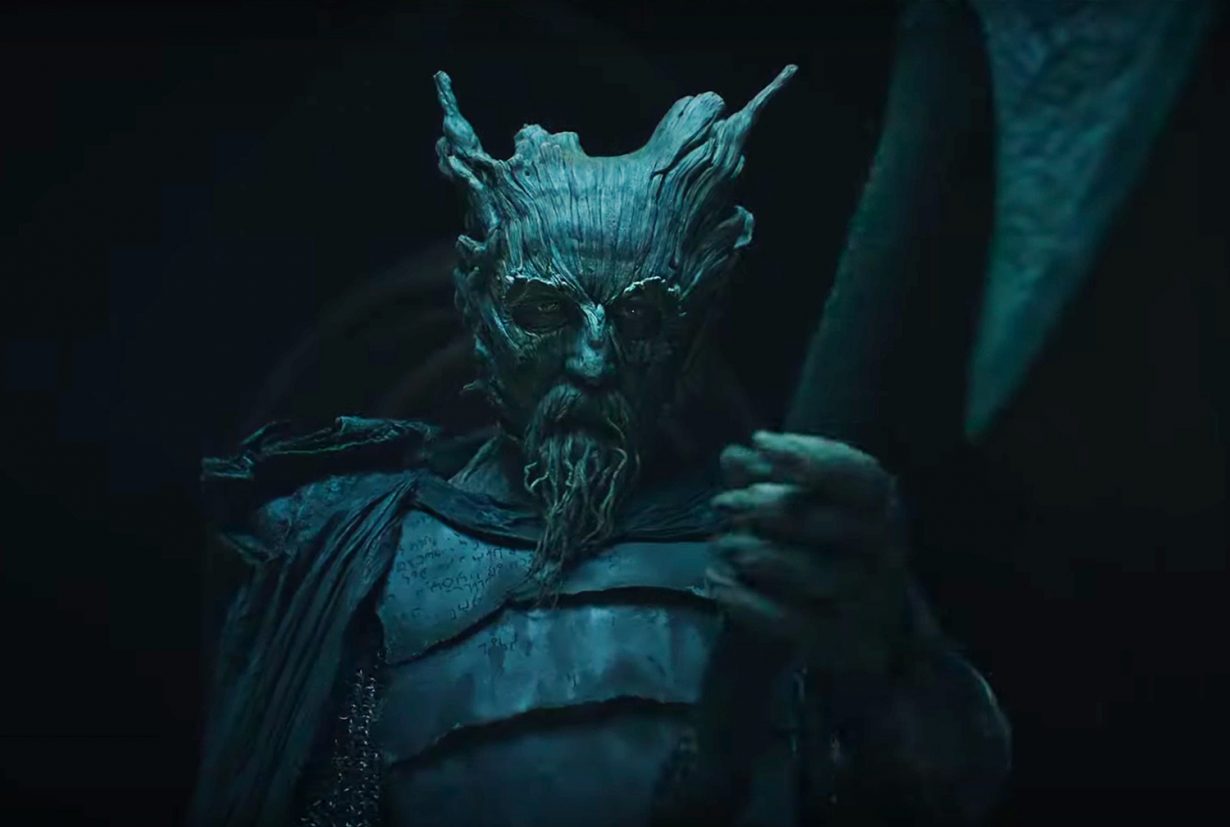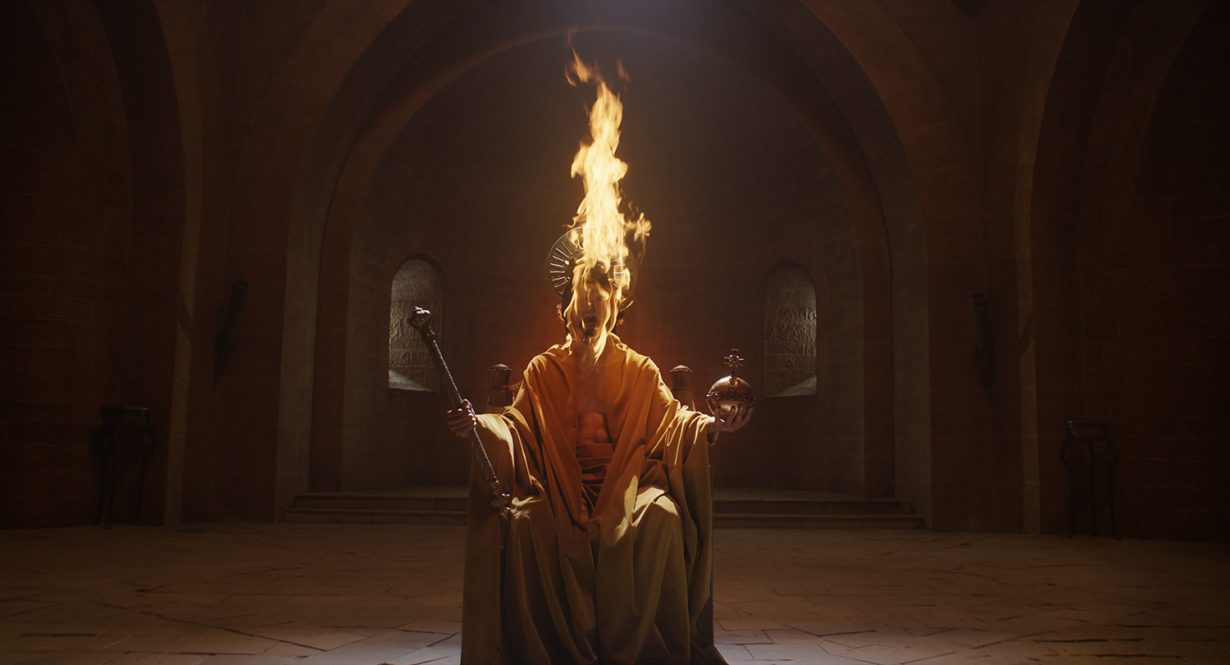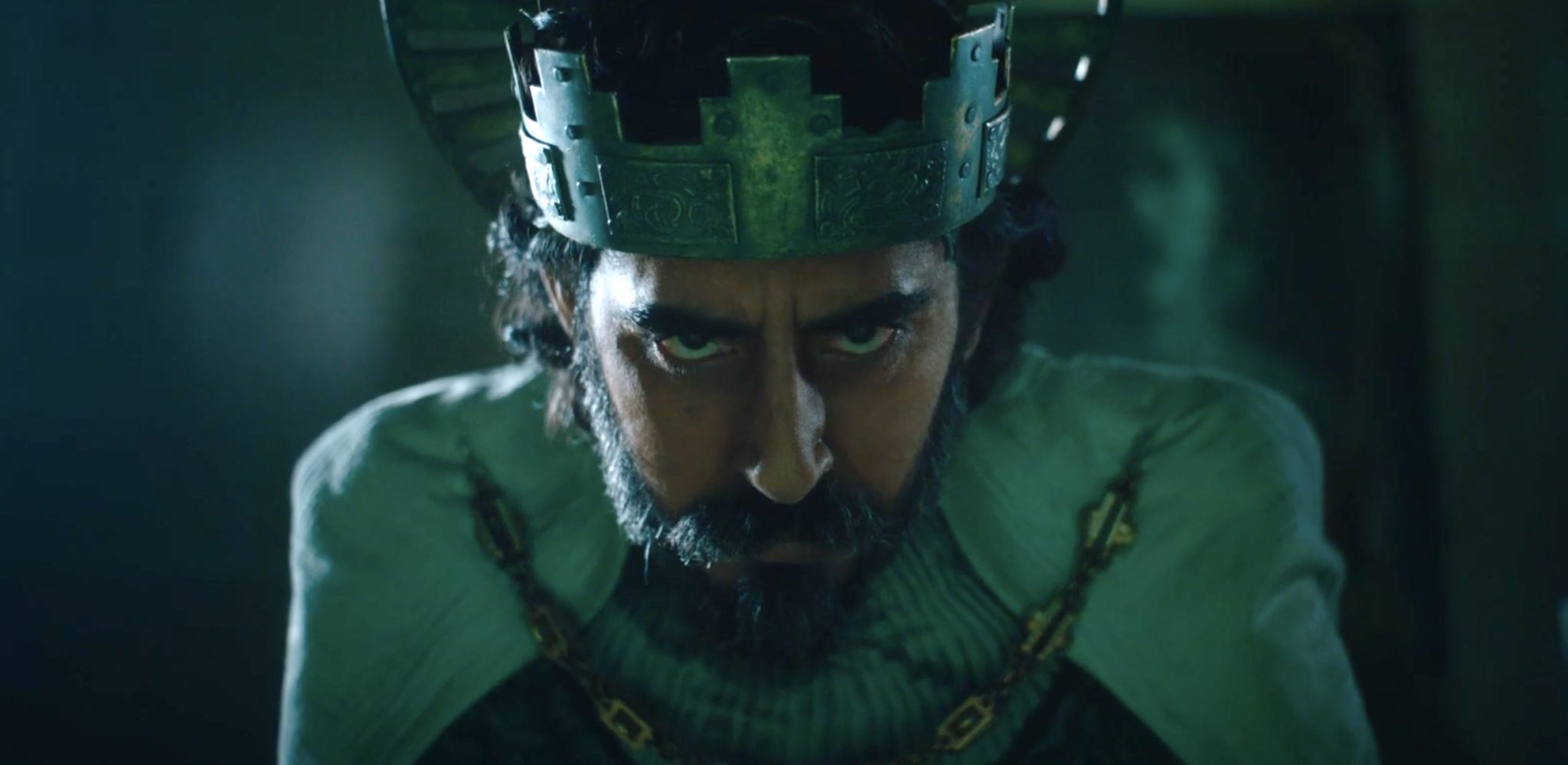Dev Patel’s Gawain is no saint; he is a practised wastrel, a carouser and a shagger and a lad, driven by laziness and pleasure rather than by honour
The film’s awakening, like most awakenings into adulthood after the wilderness years of an extended adolescence, is a rude one: it is Christmas morning in a whorehouse, and the hero of The Green Knight – if he can be called a hero – is jolted out of drunken sleep by a bucket of ice-cold water thrown over his face. Blinking, gasping, as if he had just been born, he is thrust into a narrative that moves as inexorably as a current. Gawain, who is played by Dev Patel as a boy of uncertain age, is by no means a messiah, and certainly no saint, either; it is obvious that he is a practised wastrel, a carouser and a shagger and a lad, driven by laziness and pleasure rather than by knightly honour. Still, the cries of “Christ is born” that ring around him as he dresses hurriedly and rushes headlong into morning feel a little like a nod from the film’s writer and director David Lowery about the specific shape of Gawain’s story: this, too, will reveal itself to be a tale about a young man being borne towards something mysterious, maybe tragic, almost definitely fatal, by a force or forces greater than himself.

There are, at any rate, two green knights in Lowery’s film, the other being the towering creature who appears in Arthur’s court that Christmas morning: viridescent, creaking like an ancient bough, and causing moss to spring up in the cracks between the cobbles where he treads, he is evidently a supernatural figure. As in the source material, the fourteenth-century poem Sir Gawain and the Green Knight, the visitor offers his axe to those assembled, saying that any man may land a blow on him, on the proviso that the blow will be returned in one year’s time. Gawain, a would-be knight whose green is that of inexperience, is eager to win the respect of those around him, as well as to finally become ‘Sir Gawain.’ Young, dumb, and full of the proverbial, he decides to behead his challenger. The Green Knight, casually picking up his head and turning tail, thus begins a ticking countdown to the day of Gawain’s death – an act of sudden, stupid bravery has sealed the idler’s fate, and one year hence, he is required to embark on his first, very last great quest. Because he does not possess strength or divine courage, when the newly-knighted Gawain ventures out into the world, he looks as nervous in his chainmail as a schoolboy in brand-new and too-large clothes; he is not exactly worthy of our admiration, and he spends more time being bested than succeeding in his trials. Lowery’s casting of Patel – who has the long and stately countenance of a noble, and the huge and limpid eyes of the bovine star of First Cow – is a stroke of genius, since few actors better embody the nebulous quality of ‘likeability,’ ensuring that the selfish, dunderheaded Gawain never quite tips over into outright villainy.

In its opening credits, The Green Knight describes itself as“A Filmed Adaptation of the Chivalric Romance by Anonymous.” As hideous as it is to quote a dictionary definition in a piece of criticism, as if one were hurriedly composing a last-minute wedding speech, it would feel remiss not to include the OED’s characterisation of ‘romance’ as ‘a quality or feeling of mystery, excitement, and remoteness from everyday life’” which might have been written specifically to describe the lush, woozy vibe of Lowery’s surreal film. (Romance as it pertains to love is in extremely short supply – Gawain’s lower-born lover Essel, to whom Alicia Vikander gives a wavering Northern accent, does not make a huge impression, at least until she appears in the third act in a new guise.) There is something else here, too, running entirely contra to that sense of mystery and wonder – an inescapable feeling that the story we are watching, for all of its lumbering giants and its Von Trierian talking fox, is not in fact ‘remote’ from our experience of everyday life, but perfectly and frighteningly elucidative of its structure. Gawain’s stumbling, unprepared, from ill-spent youth to shambling manhood –his abrupt departure from his family home, the way his life is shaped by his unfortunate decisions, his pretence at being an adult even when he does not look like one at all – is not the stuff of fantasy. The Green Knight is a quest movie; it is also a film about the quest each of us is forced to embark on by being born, both journeys eventually fated to end, one way or another, in the most inescapable and unwinnable trial of all.
